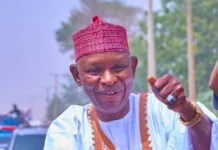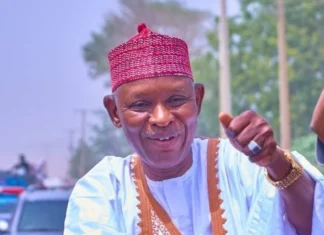Borno State Governor, Babagana Zulum has pleaded for power to be shifted to the south in 2023.
Zulum, while speaking, Thursday at the presentation of a book by former director-general of the Nigerian Maritime Administration and Safety Agency (NIMASA), Dakuku Perterside, stated that the issue of power rotation is an unspoken agreement between the regions that constitute the country.
He made the statement against the background of the speculations on which zone would get presidential ticket of the two major political parties – All Progressives Congress (APC) and the People’s Democratic Party (PDP), come 2023.
The Bala Mohammed-led committee had recommended to the PDP to throw the party ticket open so as to ensure level playing ground for individuals interested in contesting the highest political office in the land.
However, the recommendation did not go down well with the southerners, particularly the people of the Southeast.
Following the submission of the recommendations, the apex sociocultural group in the Southeast, Ohanaeze Ndigbo, threatened to throw its weight behind the candidate of the APC in 2023 should the PDP refused to zone the ticket to Igboland.
The PDP, however, said it had not adopted the recommendations of the Bala Mohammed committee.
The APC in its case has been silent on the issue of zoning.
But speaking at the event, yesterday, Zulum said: “The issue of power rotation is a covenant between us hence the need to shift the power to the south.”
He added that it was the time for Nigeria to do the right thing and that every part of the country should be given a sense of belonging.
Speaking on how to address the nation’s problems, Zulum said leaders should strive to pursue peace as it would improve security and economic growth.
“As leaders, we will pursue peace with everything that we have. When leadership achieves peace then security continues to improve and economic growth naturally follows,” he said.
“Effective leadership through serious accountability and monitoring is an important factor to succeed. Our system has been so weak that people simply consider civil service as a place to earn salary for doing nothing. We have to choose between competency and loyalty. When we go for competency, then we get it right.”
He also stressed the need to prioritise competence when choosing leaders.
“Where processes and procedures of governance are applied on a selective basis, it means we have to double our energy and check, providing overtime, motivating different levels of leadership to stand up and deliver the chance of benefit for the people,” Zulum said.
“When leadership achieves peace, then security continues to improve and economic growth naturally follows.”











